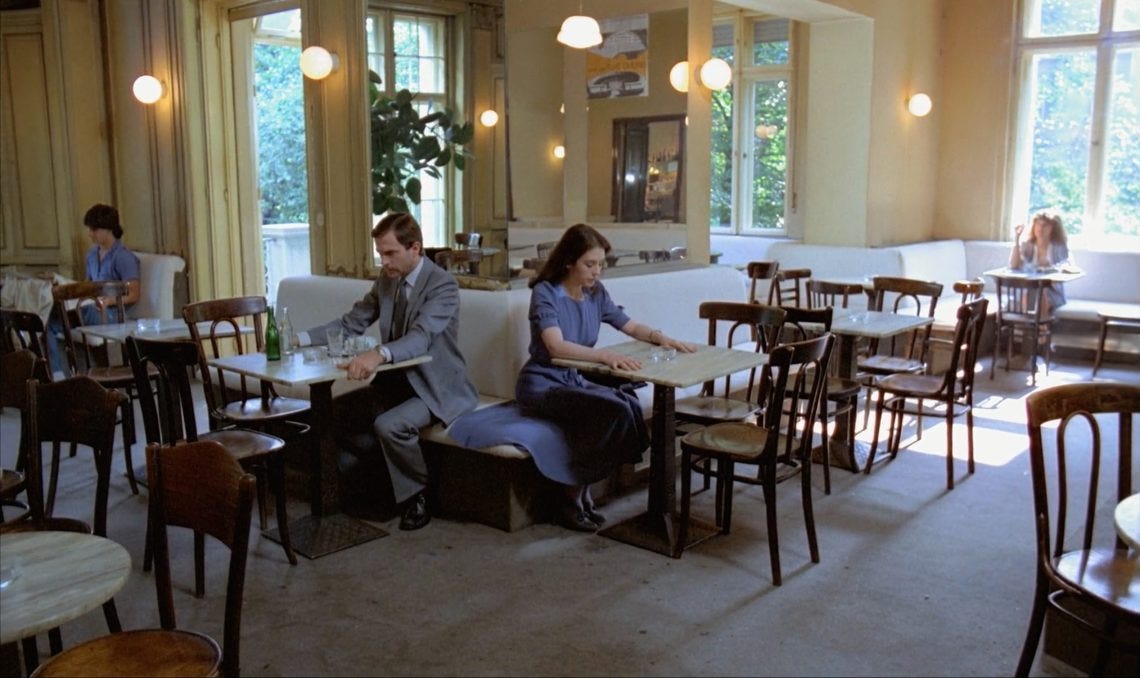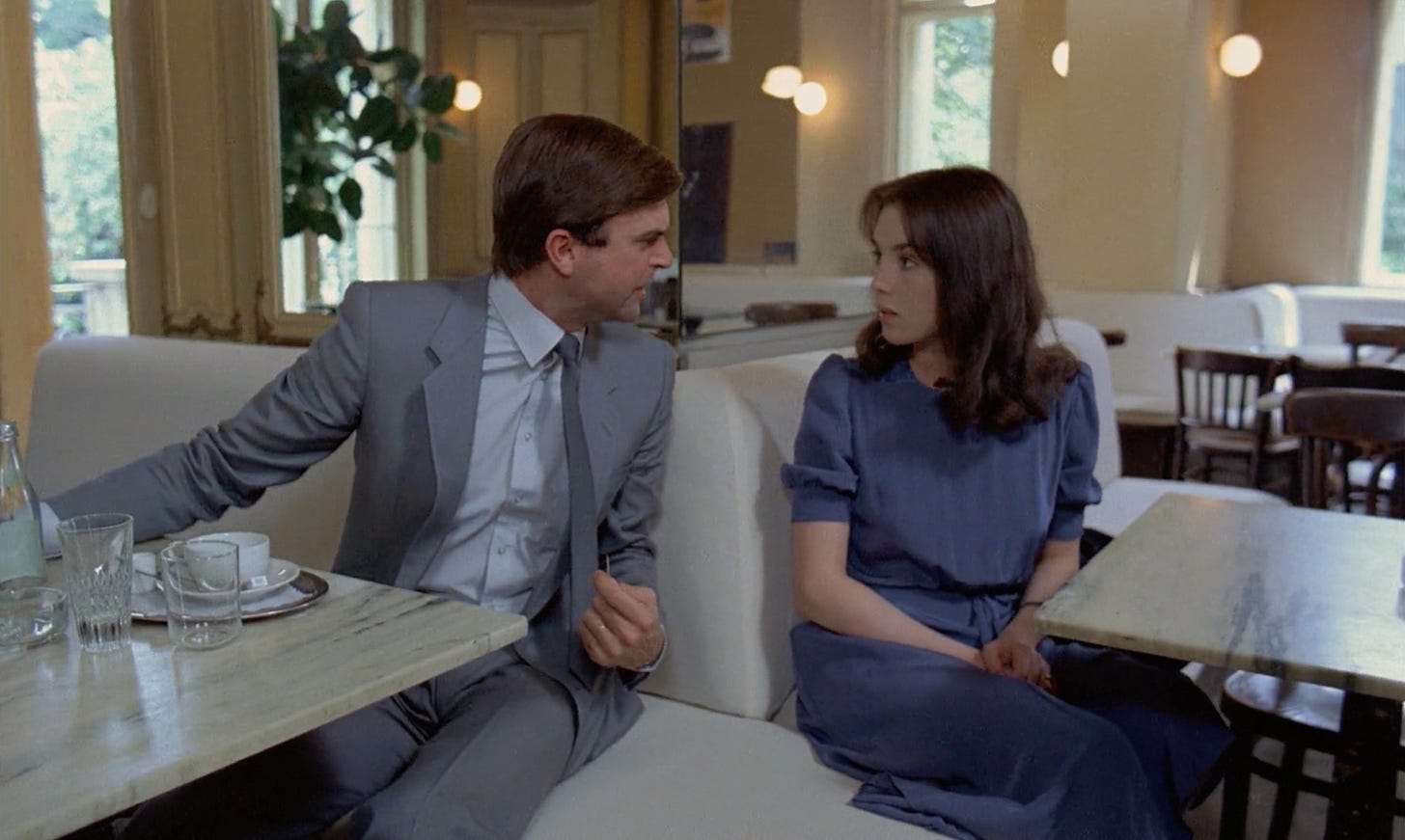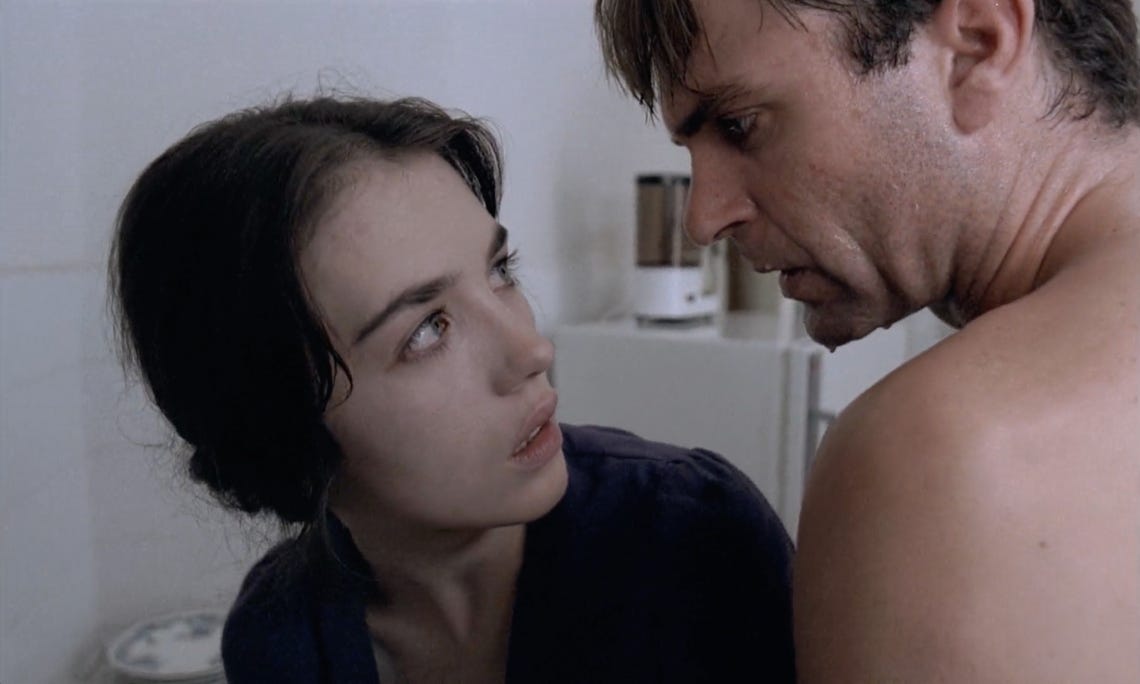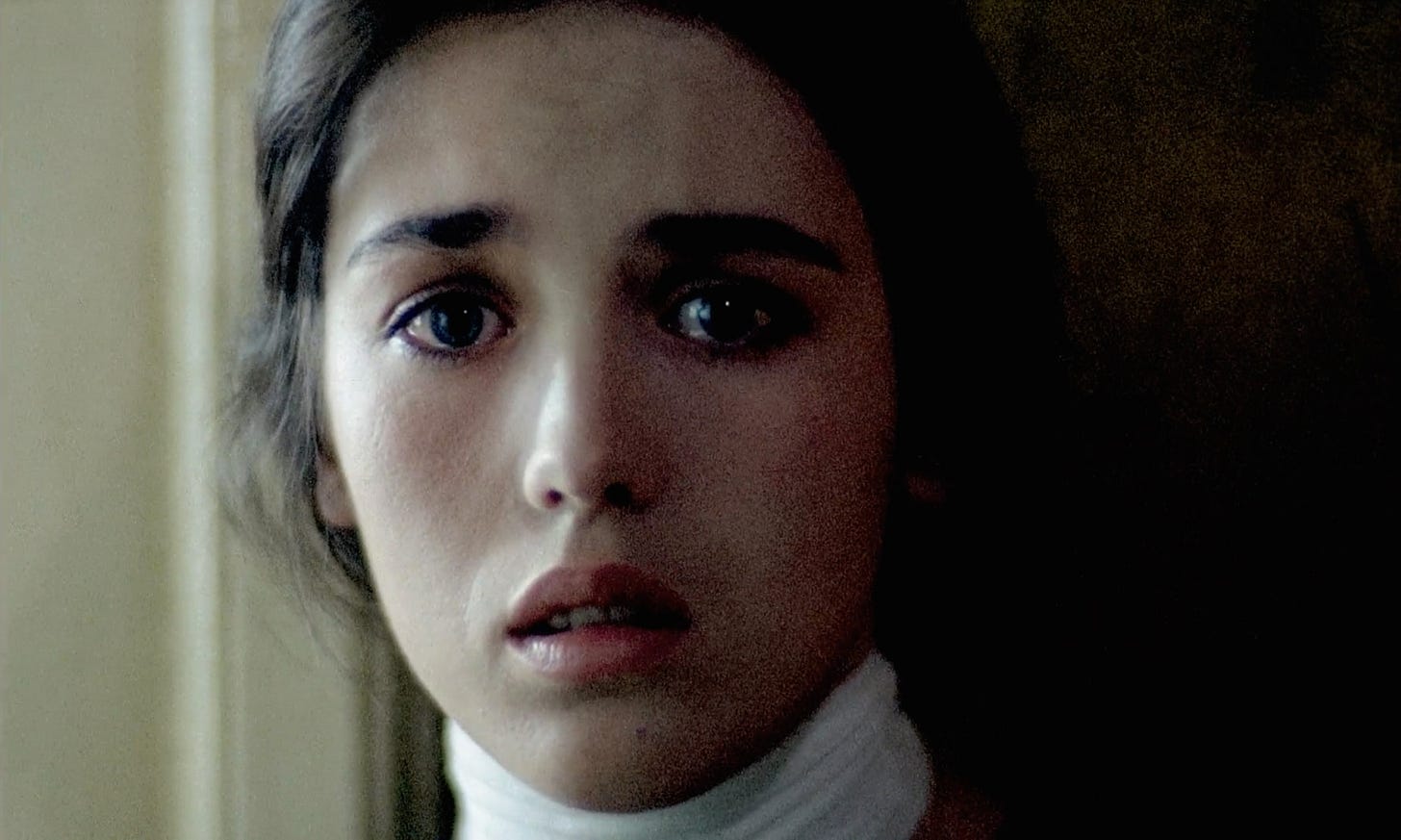In my GUT REACTIONS series, I contextualize films with their cultural significance. Trigger warning: This film analysis touches on domestic violence and miscarriage.
It has been said 100 times over that Andrzej Żuławski made Possession (1981) to get over his divorce. Safe to say, homeboy was going through it.
But even though Żuławski frames Anna as an object of contempt in the divorce narrative — a selfish “whore,” a sometimes neglectful mother, someone who feels comfortable enough bedding a demon — she also is so real.
I don’t mean “real,” in the way where we colloquially acknowledge that someone is raw and authentic — although Anna is that.
Isabelle Adjani’s most famous character is real in that she reflects the realities of so many women who have crossed my path and yours.
She feels stifled by her relationship and her quiet little life. She yearns for something a bit more exciting, but she got in over her head. At the end of the day, she simply wants to be loved.
Noting men’s disdain for this film
Spoilers ahead!
I made the mistake of listening to two dopey older white men from the Midwest share their feelings about this film on their podcast. I finished reluctantly, but I felt like I should investigate why I was so irritated.
I agreed with their take that Żuławski’s dialogue was fake-deep, to use the AAVE turn of phrase. The plot, by the end, was, in fact, muddled.
But I don’t think the couple’s arguments were unnecessarily long, loud or nonsensical.
If you’re well-adjusted and grew up with healthy models of romantic love, though, I’m sure it’s hard to relate.
If you grew up with knockdown drag-out fights between your parents serving as background noise to your background noise? Possession is just a supernatural retelling of your childhood.
The infamous subway scene in Possession
I guess I’m a Reddit user now, because I’ve been down endless rabbit holes regarding the subway scene alone. The most interesting observation? In the bowels of Berlin’s public transit system, Anna is finally alone.
Having watched The First Omen (2024)1 and The Omen (1976), I just figured Anna was just having a garden-variety post-demonic freakout.
It’s only through research and reporting that I realized Anna miscarried.
As someone with reproductive issues, I didn’t even need that context to “get it.” Before I got on birth control, I would have gladly thrashed about, lowered myself to my knees and rocked back onto the balls of my feet to free-bleed onto the bare ground. You know, if I also happened to be possessed.
Outside of perilous sex organs, the subway scene makes sense because who among us socialized as women hasn’t just needed to rage?
Just needed to get away from everyone and crash out?
I’m not certain Żuławski meant to make a deeply feminist film. By the observations of many cinephiles, it seems as if he wanted to demonize his soon-to-be ex-wife.
But Anna having a psychotic demonic breakdown and miscarriage, all while coming back from a grocery run, is an undeniably feminist image. It makes perfect, perverse sense in the context of being a woman, a mother, a wife.
Lesley Gore said it best: “You don’t own me.”
From poking around on Reddit to listening to men whine into a microphone, I can validate some of the reasons why cis het men hate this movie2.
I can also parse out why it makes them entirely uncomfortable.
Their platitudes about the dialogue and non-linear storytelling couch a discomfort with an imperfect woman. Anna is a bad wife and an at-times lazy mother.
Anna is a woman whose sexuality exists outside of a neat little box.3
Anna is a woman who runs her mouth. Anna isn’t just hot in an alternative kind of way — a Manic Pixie Dream Girl fashion — but a woman with veritable mental illness.
Anna is a woman who would not be satisfied waiting at home for you all day and all night. Anna is a woman who embodies of all of this and does not apologize for her nature — all while being arrestingly beautiful.
Sure, Anna takes it too far and quite literally gets in bed with evil. But that’s the fun of horror movies. They give you a hard-pill-to-swallow wrapped in a cheese slice — bloody, gory Kraft.
After watching Possession, I get it. If I were a cis het man, I’d probably hate Anna as well.
If I were a cis het man, I’d probably already hate every Anna that already exists in my life — and think she deserves to die, too.
I watched The First Omen first because I heard it was a prequel and big mistake! I liked that film way better than the original. I need to do a piece on how the newer film beautifully subverts the tired tropes of the nun subgenre.
If you liked the interpersonal rawness of Marriage Story (2019), the demonic motherhood arc of Rosemary’s Baby (1968) and the gooey gore of Hellraiser (1987) , I think you’re gonna love Possession.
I don’t condone cheating, but I do think the monster serves as a metaphor here for unmet sexual needs — possibly the desire to roleplay or other kinky interests.









This film/performance featured heavily in many of my pre-covid film essays. As a proud mentally-ill freak, “Women having meltdowns” is one of my specialties LOL. I’ve been saying for years the perfect double feature to this one is Antichrist. Do you have any other suggestions for a paired watch?